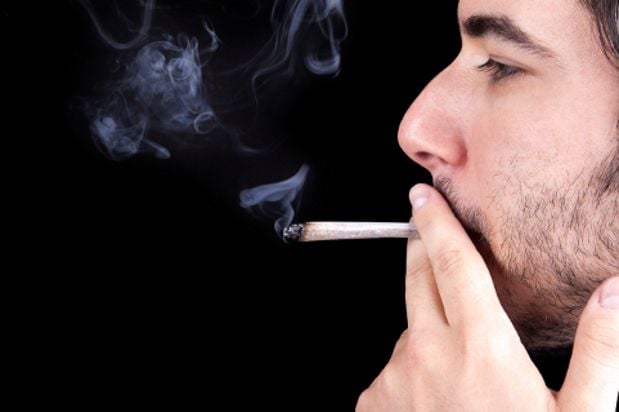Marijuana is created by drying the leaves of the cannabis plant, along with the “bud” or budding flower-like portion of the plant. The plant has been hybridized since the 1950s to increase its potency and volume of the chemical compound that is used to derive the high a user gets from smoking.
The chemical compound or active ingredient in marijuana (“pot”) is tetrahydrocannabinol, or THC. This compound has been hybridized into stronger potency through the last several decades to increase pot’s intoxication properties.
Who Smokes Pot?
It is estimated that more than four percent of the worlds’ adult population uses marijuana, and that over 22 million people worldwide smoke pot daily. The popularity of smoking marijuana has increased since it gained wide recognition and use in the 1960s. Today, marijuana is gaining even more acceptance as it is oftentimes prescribed for chronic medical conditions. Furthermore, some states have gone a step further and have legalized it for recreational use, with more states expecting to follow suit. Pot smokers do not fall within one age bracket or demographic. Pot is popular with teenagers as well as those at retirement age.
How Pot Is Taken
Marijuana is most often smoked via pipe, a bong, or rolled into cigarettes (called joints). Some users will add marijuana to foods (for example, pot is often baked in brownies) and they get high from eating the prepared food product. The frequent use of pot for treatment of chronic pain (especially for those undergoing treatment for cancer) has increased the production (and sales) of food laced with pot. Pot also acts to increase the appetite, which is beneficial for those who are undergoing chemotherapy treatment. Others vaporize the pot and inhale the vapor. Pot is also consumed by brewing into a tea and drinking the tea.
Effects of Marijuana
Marijuana effects are many. The euphoric high that many users report can also turn into paranoia and impaired motor skills. Some users experience additional symptoms of dry mouth, increased appetite (also known as "munchies"), red eyes, increased heart rate, low blood pressure, and dulled cognitive skills.
Even short term use of pot can cause respiratory damage and lead to a dry cough that is similar to the cough of a chronic cigarette smoker. Short-term memory loss is frequent, along with reduced and sometimes permanent loss of motor coordination and concentration.
Long-term use of marijuana shows all of the same effects, along with increased risk for lung, throat and mouth cancer, as well as increased impairment to the memory and cognitive skills of the user.
How Addictive Is Pot?
Research has shown some addictive properties in marijuana. There are a variety of factors that enhance a person's likelihood of becoming addicted to pot. Some of these are:
- smoking frequently at a young age
- poor emotional and/or psychological development in teen years
- poor coping skills as a teen, as well as at adult ages
- poor parenting as a young teen into young adult age
- impulsive behavior patterns
Whether these factors contribute to the properties in marijuana that are recognized as addictive is still being researched. While addiction can be a genetic factor for some, along with recognized behavioral tendencies, not everyone who uses pot will become addicted. Some psychological dependence on substances is also a key factor in determining whether users become addicted.
Marijuana Overdose
Risk of overdose on pot is not recognized as a fatal threat. However, those who ingest too much pot may experience panic attacks, paranoia and severe anxiety. They may be at risk of harming themselves, due to lack of judgment and perceptual impairments caused by the drug.
Withdrawing from Pot
When long-term and chronic users of marijuana stop, they experience some symptoms of withdrawal. These have been recognized as anxiety, irritability, and cravings for the drug. Other signs to look for are a depressed mood, restlessness, and sleep disturbances. These symptoms are not dangerous for the user, and no medical intervention is necessary unless they impact the user who has other medical concerns.
Marijuana Addiction Treatment
In 2013, marijuana use is the single most often reported substance of abuse named by those who were entering treatment programs for addiction treatment. Addiction specialists treat pot addiction in much the same way as other drugs. There are no substitute drugs necessary for treatment, and 12-step program intervention is as effective, if not more so, than with any other type of treatment. Most treatment centers have programs to assist addicts in learning skills to offset their need for and use of marijuana. Detox programs are not needed for marijuana treatment, except as may be beneficial during cravings.
In-patient or out-patient treatment programs are suitable for pot addiction, as are counseling centers specializing in addiction treatment, support groups or 12-step communities.
If you or someone you know is seeking help with marijuana dependence, please visit our directory of marijuana treatment centers or call 866-606-0182 to start the path to recovery today.








